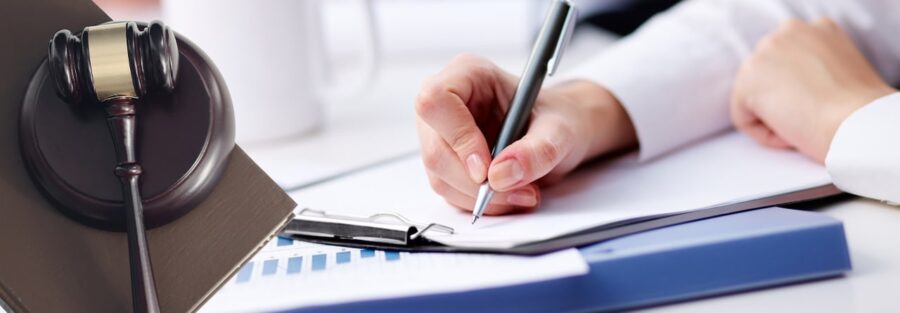Issuing Concordat Reasonable Assurance Report
Issuing a reasonable assurance report for concordat, independent audit that will issue “Reasonable Assurance Report during concordat process At this point, there is a situation that companies need to scrutinize. The provisions of the Decree-Law No. 660 shall apply to administrative and legal liability and other issues arising from these reports.
In other words, the auditor has to strictly apply the auditing standards while issuing this report. It should be noted that as of the issuance of the reasonable assurance report, we are directly responsible for all kinds of problems that may arise in relation to the items of the financial statements. We are always ready to give you the best service with our professional team.
What is a Reasonable Assurance Report?
The Reasonable Assurance Report (Official Gazette) is the report that the debtor must submit to the court for the declaration of concordat. (You can learn all the necessary documents for the declaration of concordat here.) The content of the report consists of two main parts.
1) It is the inspection of the applicability of the preliminary project prepared by the borrower. In this section, the preliminary project is audited, which contains information on how the debtor will pay his debts and how to improve his situation. If the preliminary project is found reasonably applicable by the auditor as a result of the audit, the auditor expresses an affirmative or qualified opinion.
2) Audit of the debtor’s financial statements. This section can be considered as a short independent audit. The methods to be applied in the Independent Audit phase are also applied in this section (stock counting, valuation, debt-credit aging, reconciliations, etc.). In the light of the data obtained, the suitability of the company’s financial statements is evaluated. During this evaluation, necessary evidence is also collected. In both sections, the main purpose is to determine the honesty of the debtor with an independent audit. The first part checks the feasibility of the preliminary project prepared by the borrower.
In other words, it is aimed at finding answers to questions such as “Can the debtor pay his debts with the maturity or reduction mentioned, or will the capital increase that he has committed have a benefit in paying the debt, is the estimated income from the sales at a reasonable level”. In the second part, independent auditing standards (see) determined by KGK are applied. As a result of these standards, the balance of the debtor and the consistency of the items in the balance sheet are measured.
Responsibilities of the Auditor Writing the Reasonable Assurance Report
The independent audit company that wrote the report gave the assurance that the court sought. For this reason, the auditor may be held responsible for future errors during the concordat. With this responsibility, the legislator asked the auditor to take responsibility in this process. Control of the debtor’s integrity was given to the auditor and they were held accountable. The report written by the auditor can be reviewed by the POA and legal action can be taken against the audit firm in case of error detection.
For a Reasonable Assurance Report, you can apply to AG Certified Public Accountant and Independent Audit Inc. by filling out the offer form You can get preliminary information.
Concordat Application
For Concordat Application, AG Certified Public Accountant and Independent Audit Inc. You can apply and get preliminary information by filling out the form.
What is a Reasonable Assurance Engagement?
Independent audit is applied to obtain sufficient and appropriate independent audit evidence that can ensure the compliance and accuracy of the annual financial statements and other financial data of the enterprise with the criteria determined for the statements and information. The most appropriate answer to the question of what is independent auditing is the application of all independent auditing techniques stipulated in generally accepted independent auditing standards, their evaluation and reporting on books, records and documents.
Independent auditors examine the validity of the evidence with a questioning approach and evaluate whether the evidence contradicts the statements of the business management and other information and documents.
The independent audit designs the financial statements to provide reasonable assurance that they are free from material errors. Reasonable assurance is the collection of sufficient and appropriate audit evidence to conclude that the financial statements as a whole are free from error in quality and quantity.
Reasonable assurance in independent audit: It is a high but not absolute level of assurance within the framework of the audit of financial statements.
Independent auditing standards require the auditor to obtain reasonable assurance on the basis of an opinion on whether the financial statements as a whole are free from material errors due to fraud or error. Reasonable assurance is a high level of assurance that is not 100%. The auditor obtains reasonable assurance when, despite the presence of a material misstatement in the financial statements, the auditor obtains sufficient appropriate audit evidence to reduce the audit risk expressed as an inappropriate opinion to an acceptably low level. However, reasonable assurance is not an absolute level of assurance because of the inherent limitations of the audit that make the auditor’s conclusions and most audit evidence persuasive rather than definitive on which to base his opinion.
The auditor obtains sufficient appropriate audit evidence to reduce audit risk to an acceptably low level to obtain reasonable assurance. This evidence enables the auditor to reach reasonable conclusions based on his opinion.
Reasonable assurance commitments: Refers to assurance commitments in which the practitioner reduces the assurance risk in participation to an acceptable level with respect to the results to be achieved.
In addition, as it is known, significant changes have been made in the articles of the Law No. 7155 and the Execution and Bankruptcy Law No. 2004 regarding the concordat, and those who will apply for the concordat announcement are obliged to obtain a reasonable assurance report.
If, as a result of the audit, the independent audit firm reaches a positive conclusion that the proposal included in the preliminary project of the concordat will be realized, it prepares the audit report that gives reasonable assurance. It notifies the institution within sixty days from the debtor’s request for concordat.



